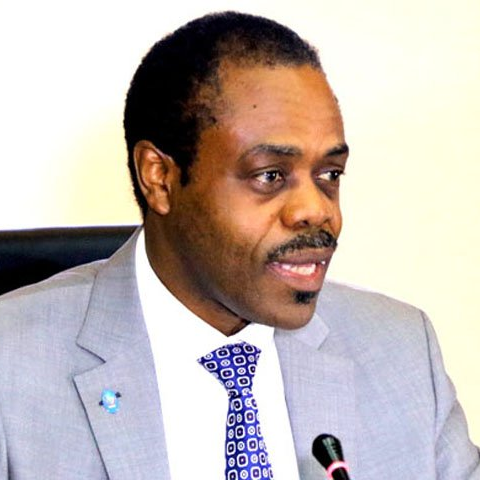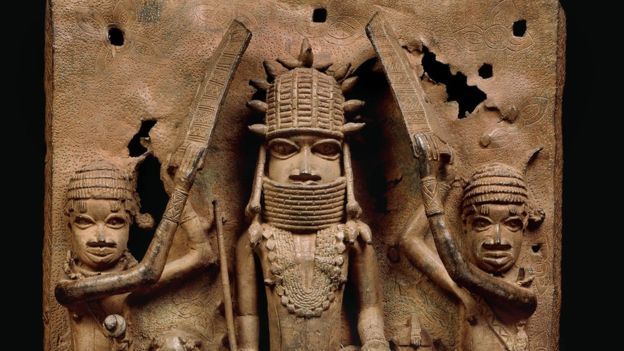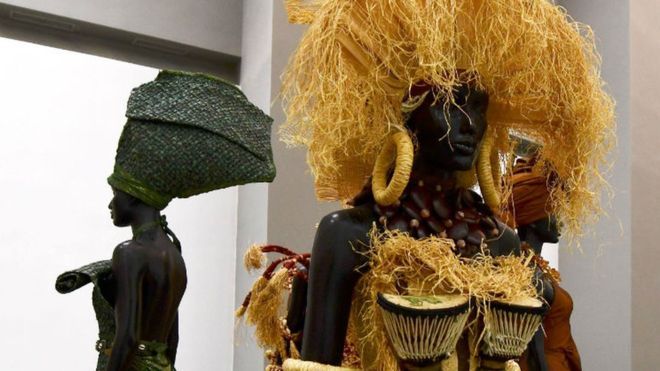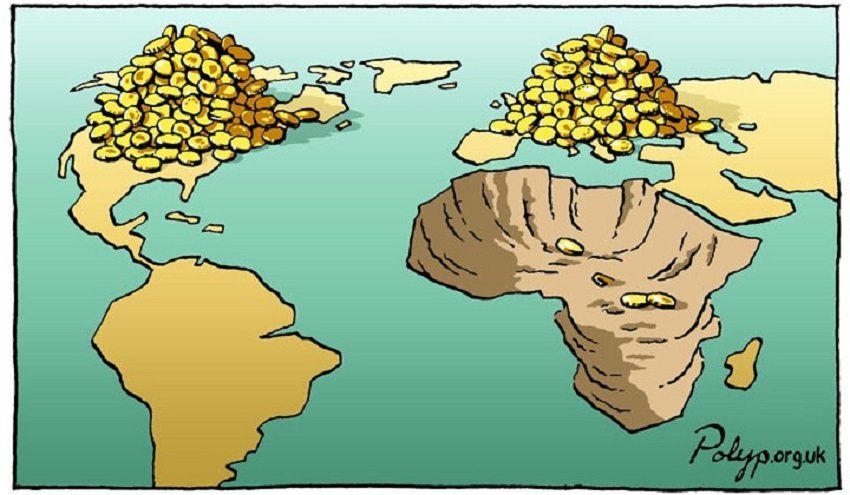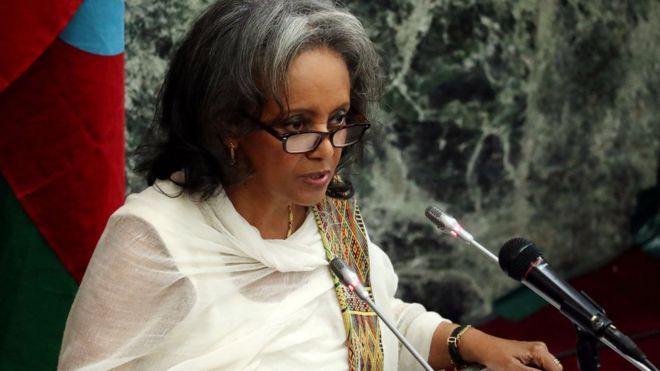Nelson Mandela, a towering figure in the annals of history, epitomizes the triumph of human spirit and unwavering commitment to justice. Born into a world of racial inequality and oppression, Mandela rose to become a global symbol of resilience and reconciliation. His enduring struggle against apartheid's tyranny led him to spend 27 years behind bars, emerging not embittered, but with a heart magnanimous enough to forgive. Mandela's release from prison marked the turning point for a nation, as well as an era, as he guided South Africa towards its first multiracial elections and assumed the presidency. His legacy is one of unity and inclusivity, an embodiment of the idea that the chains of prejudice can be broken, paving the way for a brighter, more equitable future. Mandela's life story reminds us that within the darkest corners of history, the light of change can still shine through, and that even the longest of struggles can culminate in freedom, if one's conviction remains unyielding.
24 African Heroes Who Stood By Their Beliefs
These African heroes who stood by their beliefs no matter what, worked to liberate African countries from colonizing forces or to better black interests throughout the world. Some paid the ultimate price with their lives.
Nelson Mandela | South Africa
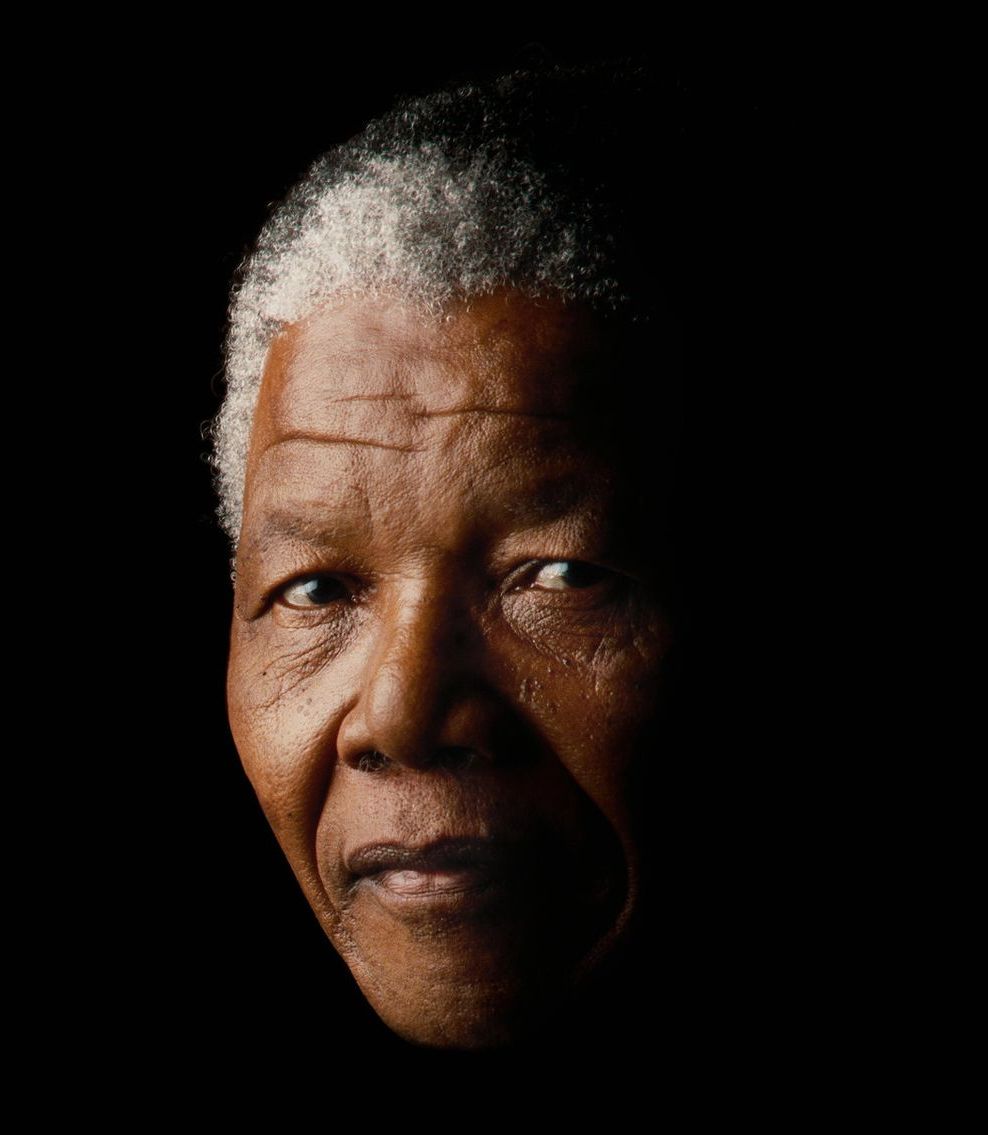
Wangari Maathai | Kenya
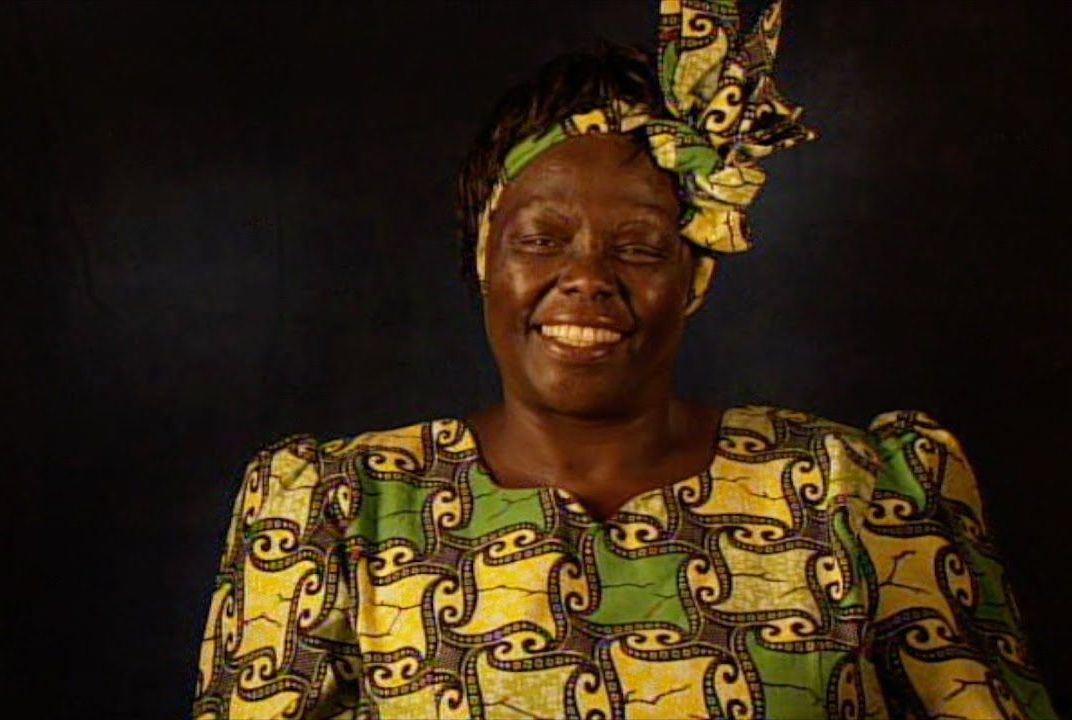
Wangari Maathai, a trailblazing environmentalist and social activist, leaves an enduring legacy as a symbol of grassroots empowerment and ecological conservation. Hailing from Kenya, Maathai recognized the intrinsic link between environmental degradation and social injustice, and she founded the Green Belt Movement in 1977. Through this organization, she championed the planting of trees to combat deforestation, soil erosion, and to empower women in rural communities. Maathai's tenacity in the face of adversity was evident as she challenged the Kenyan government's oppressive policies, enduring arrests and persecution while never swaying from her mission. In 2004, she became the first African woman to receive the Nobel Peace Prize, a testament to her dedication to the environment and her unwavering commitment to sustainable development. Maathai's life exemplifies how individual actions can inspire monumental change, as her Green Belt Movement continues to thrive, having planted over 51 million trees and empowering countless women. Her legacy serves as a reminder that every act of environmental consciousness and every fight for social justice, no matter how small, contributes to a more equitable and sustainable world. Wangari Maathai's story inspires us to realize that our collective power can shape a greener, healthier planet for generations to come.
Patrice Lumumba | Democratic Republic of Congo
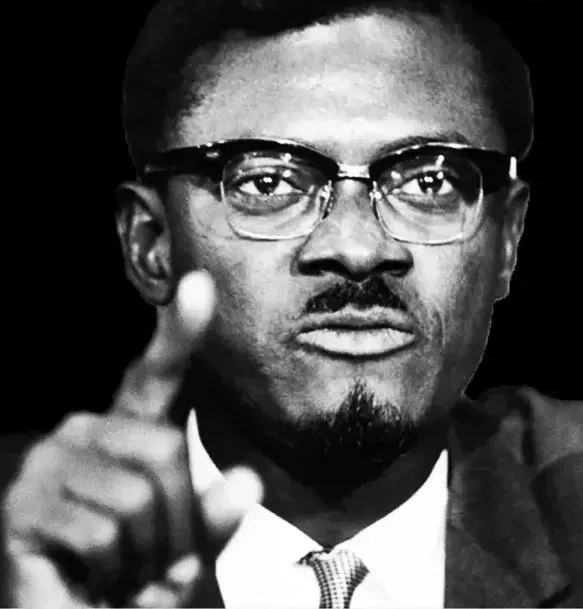
Patrice Lumumba, a luminary in the fight for African independence, shines as a symbol of courage and determination in the face of colonial oppression. Hailing from the Democratic Republic of Congo, Lumumba's passionate advocacy for self-determination and decolonization ignited hope among his people. In 1960, he played a pivotal role in steering the Congo towards its long-awaited independence from Belgian rule. His impassioned speeches and charismatic leadership made him a beacon of hope for millions yearning for liberation. Tragically, Lumumba's dedication to his beliefs led to his untimely assassination, highlighting the perilous road to freedom that many leaders of his era faced. His life story is a testament to the complexity of post-colonial Africa and the profound impact that a single individual can have in the quest for sovereignty. Lumumba's legacy endures as a reminder that the struggle for self-rule is a continuous journey, one that demands both unwavering dedication and a willingness to pay the ultimate price. His vision of a united and independent Africa continues to inspire generations, as his unwavering commitment to justice remains a powerful example of the strength of the human spirit in the face of adversity.
Thomas Sankara | Burkina Faso
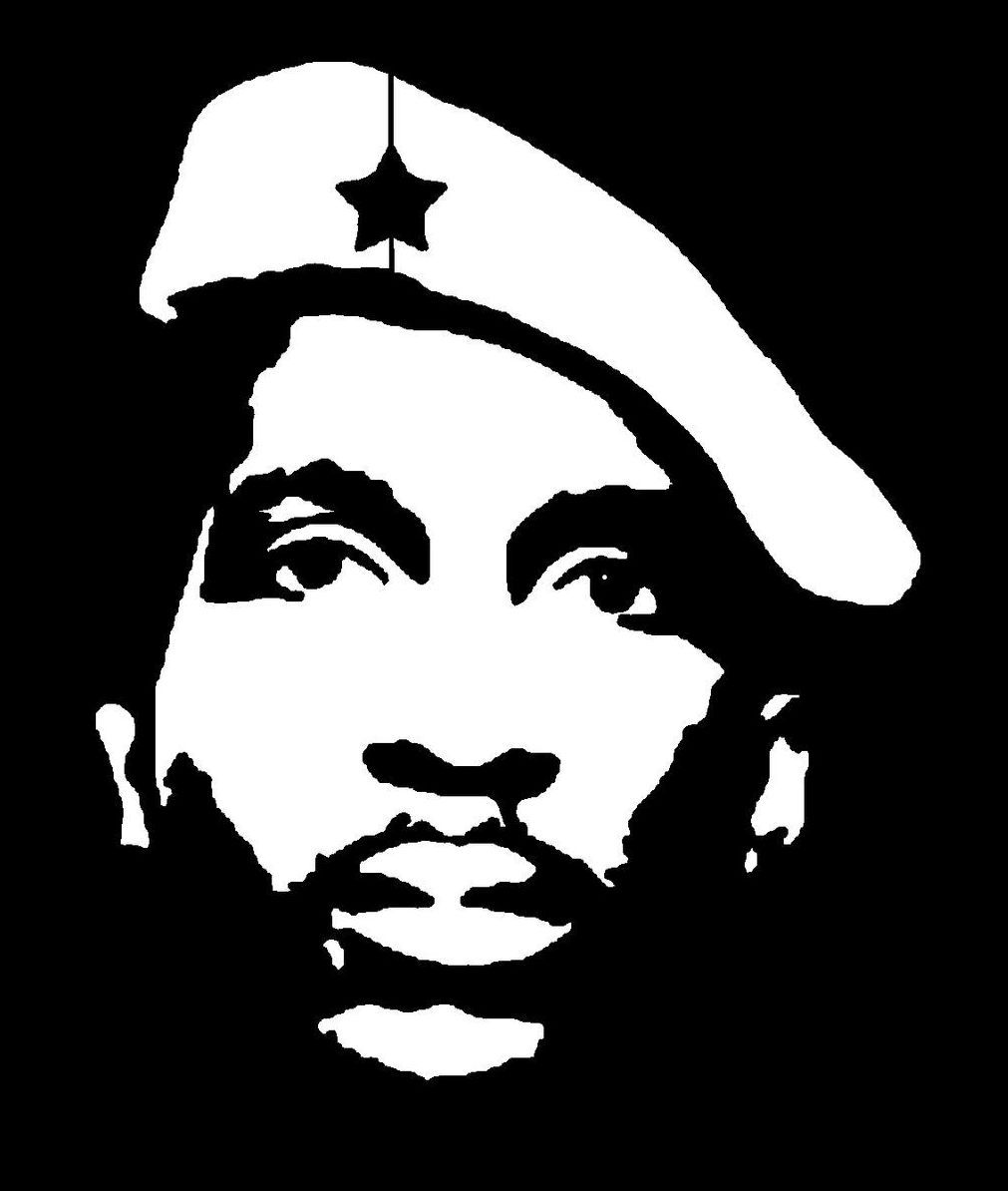
Thomas Sankara, a visionary leader and fervent advocate for change, stands as a remarkable example of transformative leadership in Africa. As the President of Burkina Faso from 1983 to 1987, Sankara embarked on a radical mission to uplift his nation from poverty and oppression. His policies were characterized by a commitment to self-sufficiency, social justice, and Pan-African unity. Sankara's determination to challenge the status quo led to ambitious reforms that included land redistribution, women's rights advancements, and a renewed emphasis on education and healthcare. His charismatic leadership style and passionate speeches galvanized the masses, fostering a sense of pride and empowerment among Burkina Faso's citizens. Tragically, Sankara's ideals clashed with vested interests, and his life was cut short by an assassination in 1987. However, his legacy lives on as a symbol of the potential for transformative change, even in the face of powerful opposition. Sankara's unwavering commitment to his principles demonstrated that true leadership transcends personal gain and is rooted in a genuine desire to improve the lives of those most marginalized. His legacy remains a beacon for leaders worldwide, reminding us that progress requires bold vision, resolute action, and an unyielding dedication to the welfare of the people. Thomas Sankara's impact reaches far beyond the borders of Burkina Faso, inspiring generations to envision and strive for a better future.
Chimamanda Ngozi Adichie | Nigeria

Chimamanda Ngozi Adichie, a literary luminary and a fearless advocate for gender equality, has left an indelible mark on both the literary world and social discourse. Hailing from Nigeria, Adichie's works explore the complexities of identity, culture, and feminism in a globalized world. Her writing, characterized by vivid storytelling and profound insights, has garnered international acclaim, shedding light on the African experience and challenging prevailing narratives. Adichie's novel "Half of a Yellow Sun" vividly captures the Nigerian-Biafran War, while "Americanah" navigates themes of race, immigration, and belonging with remarkable depth. Beyond her literary contributions, Adichie's TED Talk "We Should All Be Feminists" ignited a global conversation about gender equality, inspiring individuals to reexamine societal norms and expectations. Her unapologetic advocacy for feminism resonates with people of all backgrounds, emphasizing the importance of equal rights and opportunities for all. Adichie's impact extends beyond her written words, as she encourages readers to critically engage with the world around them and to challenge ingrained biases. Her legacy serves as a reminder that literature has the power to shape minds and provoke change, making her a powerful role model for aspiring writers and activists alike. Through her eloquence, intellect, and unflinching dedication to justice, Chimamanda Ngozi Adichie exemplifies the potential of literature to bridge gaps, ignite conversations, and inspire progress in a world hungry for transformative ideas.
Kwame Nkrumah | Ghana
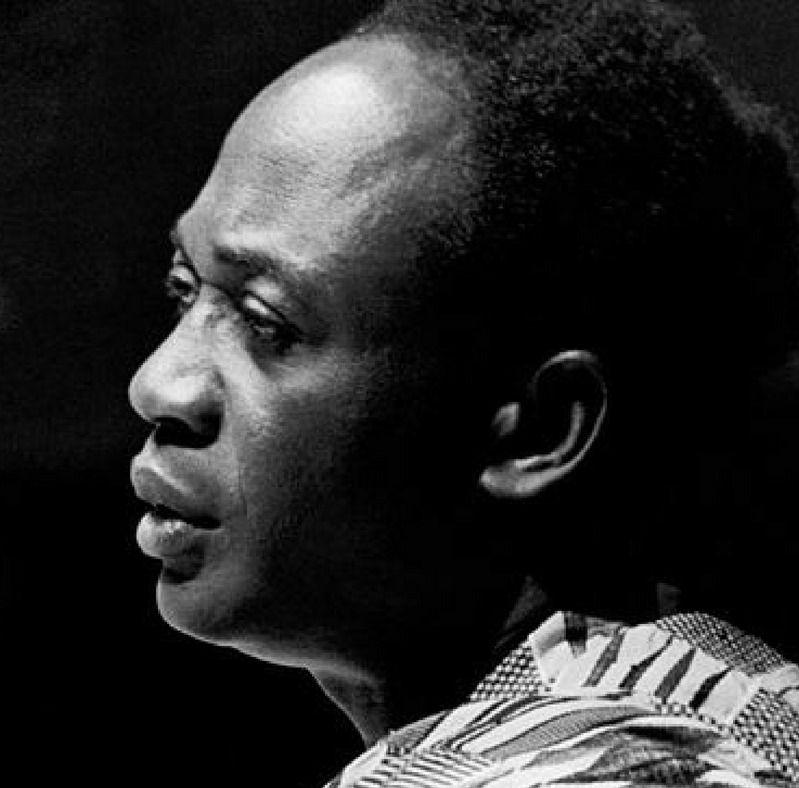
Kwame Nkrumah, a visionary leader and ardent advocate for Pan-Africanism, left an indelible mark on the struggle for African independence and unity. As the first President of Ghana and a driving force behind the nation's liberation from colonial rule, Nkrumah's steadfast commitment to decolonization and self-determination reshaped the course of African history. His philosophy of "African socialism" aimed at achieving economic self-sufficiency and social justice, and he pursued policies that aimed to uplift the lives of Ghanaians. Nkrumah's vision extended beyond the borders of his own country, as he championed the Pan-African movement, emphasizing the importance of unity among African nations to overcome colonial legacies and create a brighter future. While his leadership style was not without controversy, his dedication to the African cause and his unwavering belief in the potential of the continent earned him a lasting place in history. Nkrumah's influence continues to reverberate across Africa and the diaspora, reminding us of the power of determination, unity, and the pursuit of a better future for all. His legacy serves as a reminder that even in the face of challenges, visionary leaders can shape the destiny of nations and inspire generations to come.
Yaa Asantewaa | Ghana
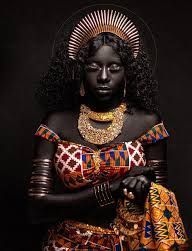
Yaa Asantewaa, a remarkable figure in African history, stands as a beacon of courage and resilience. As a warrior queen and leader of the Ashanti-British War in 1900, her unwavering dedication to her people's culture, sovereignty, and freedom set her apart as an iconic symbol of resistance. In the face of colonial oppression, Yaa Asantewaa's boldness in rallying her people against the British forces showcased her indomitable spirit and her commitment to preserving the Ashanti Kingdom's autonomy. Her leadership shattered gender norms, as she demonstrated that women could be fierce leaders and warriors, fiercely protecting their land and culture. Yaa Asantewaa's legacy reverberates through history as a testament to the strength of the human spirit in times of adversity. Her bravery and determination inspire generations to stand up for their beliefs and fight for justice, echoing the message that even in the most challenging circumstances, one individual's courage can change the course of history. Yaa Asantewaa's story underscores the importance of remembering and celebrating the contributions of women in shaping the destiny of nations, and her legacy remains a reminder that the fight for freedom and self-determination knows no boundaries.
Steve Biko | South Africa

Steve Biko, a resolute champion of black consciousness and anti-apartheid activism, left an indelible imprint on South Africa's struggle for racial equality. As a co-founder of the Black Consciousness Movement, Biko's legacy is one of empowerment, self-discovery, and the unyielding belief in the worth and dignity of black individuals. His visionary leadership emphasized psychological liberation, urging black South Africans to reject the internalized oppression perpetuated by apartheid. Biko's writings, including "I Write What I Like," ignited a fervor for self-awareness and self-empowerment among his fellow citizens, challenging the very core of the apartheid system. His tragic death in police custody in 1977 at the young age of 30 amplified his influence, galvanizing a global movement against the inhumanity of apartheid. Biko's dedication to equality and his unwavering spirit in the face of adversity continue to inspire activists worldwide. His legacy transcends his short life, reminding us that a single voice, fueled by unyielding conviction, can drive seismic shifts in the course of history. Steve Biko's enduring impact serves as a poignant reminder that true change begins with embracing one's own identity and standing tall in the face of injustice, advocating for a world where every individual is recognized, respected, and free from oppression.
Miriam Makeba | South Africa
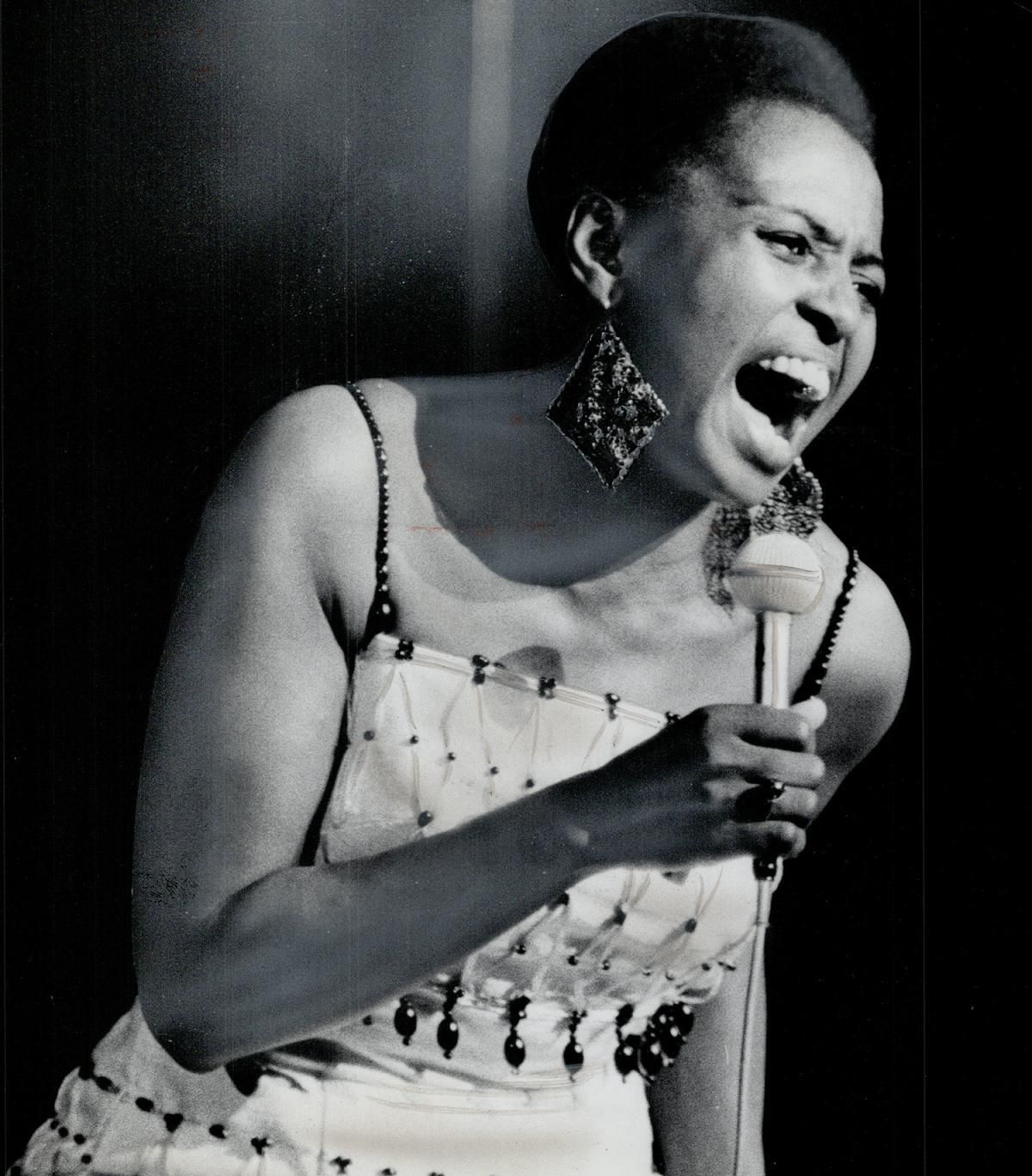
Miriam Makeba, a musical icon and civil rights activist, left an indelible mark on both the world of music and the fight against apartheid in South Africa. Known as "Mama Africa," Makeba's voice resonated not only through her soulful melodies but also through her unyielding dedication to justice and equality. Exiled from her homeland for her outspoken opposition to apartheid, Makeba used her global platform to shed light on the injustices plaguing her country. Her songs, such as "Pata Pata" and "Malaika," carried messages of hope, unity, and the longing for a better world. Makeba's activism reached its pinnacle when she testified against apartheid before the United Nations in 1963, bringing international attention to the brutal regime's atrocities. Through her collaboration with artists like Harry Belafonte and Paul Simon, Makeba's music became a powerful tool for raising awareness and rallying support for the anti-apartheid cause. Her return to South Africa in 1990, following the release of Nelson Mandela and the end of apartheid, symbolized not only her personal triumph but also the collective victory of justice over oppression. Miriam Makeba's life journey illustrates the extraordinary power of art to drive social change, transcending borders and language barriers to inspire hearts and minds. Her legacy continues to remind us that artists can be catalysts for transformation, using their talents to amplify the voices of the marginalized and demand a world rooted in equality and humanity. As we celebrate her musical contributions and advocacy, let us honor Makeba by recognizing the potential of art as a force for good and by continuing to strive for a world where justice and freedom reign supreme.
Kofi Annan | Ghana
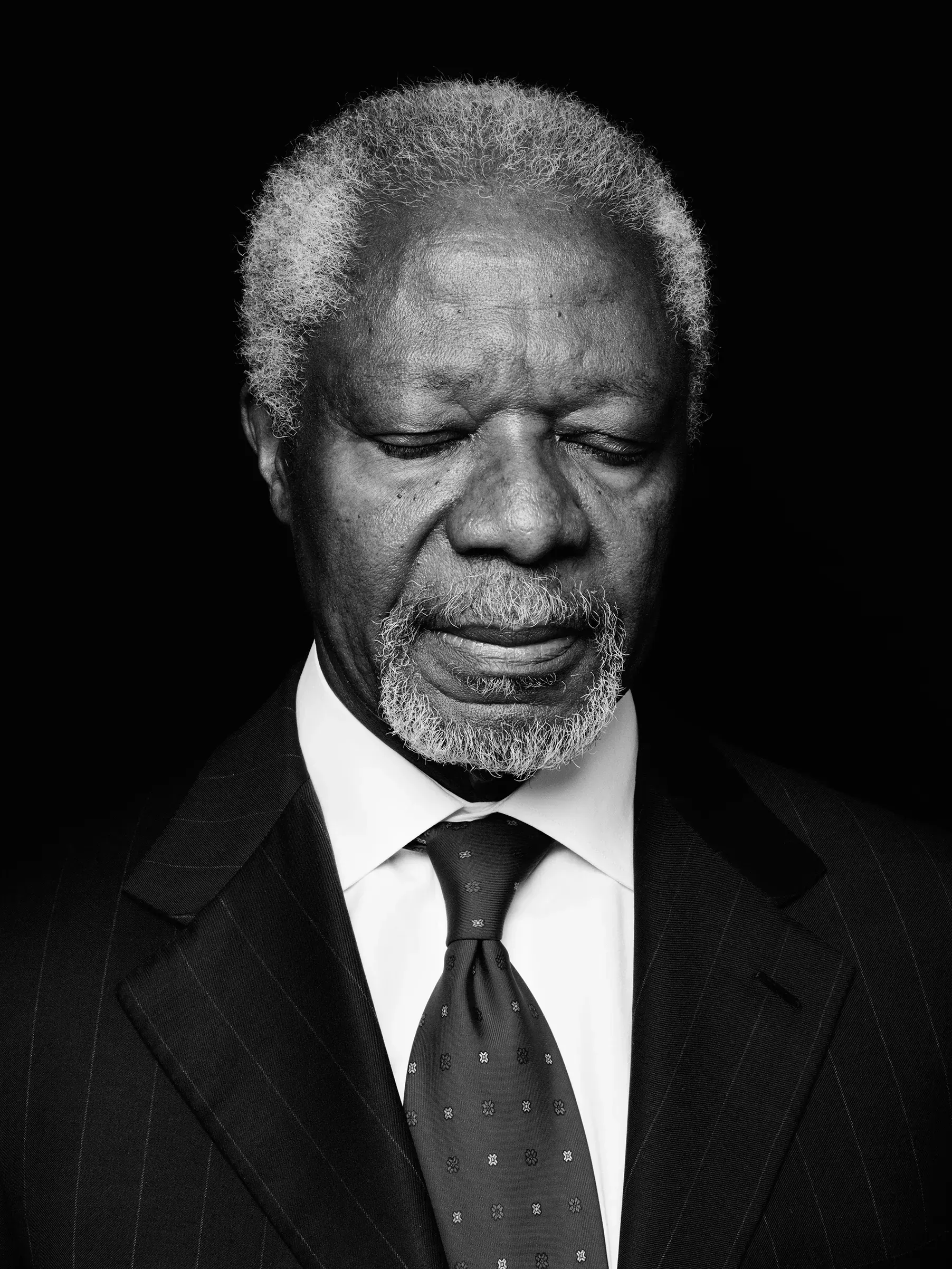
Kofi Annan, a diplomat of unparalleled wisdom and compassion, left an indelible legacy as a global peacemaker and advocate for human rights. Serving as the seventh Secretary-General of the United Nations, Annan's tenure marked a pivotal moment in international diplomacy. His commitment to diplomacy, multilateralism, and conflict resolution earned him the Nobel Peace Prize in 2001. Annan's leadership was defined by his ability to bridge divides, fostering dialogue and cooperation among nations in the face of some of the world's most pressing challenges. From addressing the HIV/AIDS pandemic to advocating for the Millennium Development Goals, Annan's visionary approach emphasized the interconnectedness of global issues. His unwavering belief in the dignity of all people led to the establishment of the Responsibility to Protect doctrine, ensuring that the international community must intervene to prevent atrocities. Beyond his formal role, Annan continued his pursuit of peace through various initiatives, including chairing The Elders, an independent group of global leaders working for human rights and peace. His commitment to accountability and justice is perhaps most evident in his efforts to address the 1994 Rwandan genocide and the Srebrenica massacre. Kofi Annan's legacy continues to inspire diplomats, activists, and leaders worldwide. His dedication to improving the lives of the marginalized, promoting global cooperation, and defending human rights reminds us of the profound impact that one individual's compassion and leadership can have on the world stage. As we reflect on his life and work, let us honor Kofi Annan's enduring contributions by reaffirming our commitment to peace, justice, and a world united in the pursuit of a better future for all.
Ellen Johnson Sirleaf | Liberia
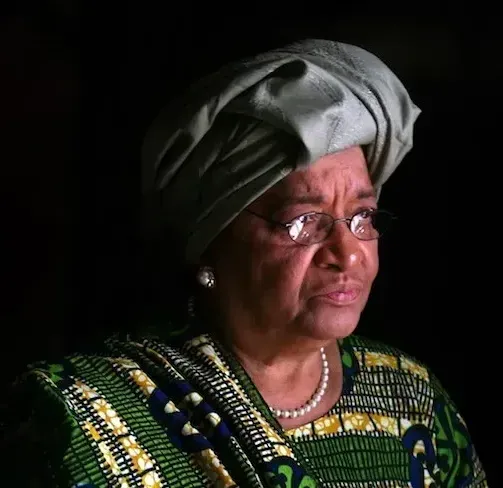
Ellen Johnson Sirleaf, a trailblazer in African politics and a symbol of female empowerment, has left an indelible mark on Liberia and the world. As Africa's first female elected head of state and Liberia's 24th president, Sirleaf shattered glass ceilings and embodied the resilience of a nation emerging from civil conflict. Her leadership was defined by her unyielding commitment to democracy, peace, and gender equality. Under her presidency, Liberia saw significant progress in post-war recovery, economic growth, and governance reform. Sirleaf's dedication to accountability and transparency was recognized when she was awarded the Nobel Peace Prize in 2011, alongside fellow Liberian Leymah Gbowee and Yemeni activist Tawakkol Karman, for their nonviolent struggle for women's rights and peace. Throughout her presidency, she maintained a focus on reconciliation, working to heal the wounds of civil war and bridge divides in Liberian society. Sirleaf's legacy extends beyond her time in office; she has served as a mentor to women leaders and has continued to champion women's rights and social justice on the global stage. Her journey is a testament to the transformative power of leadership that prioritizes inclusion and upliftment, even in the most challenging of circumstances. Ellen Johnson Sirleaf's legacy encourages us to recognize the potential of women leaders in shaping nations and inspiring change. As we reflect on her life's work, let us strive to cultivate leadership that champions equity, justice, and the empowerment of all individuals, regardless of gender or background, to build a world where everyone's voice is heard and valued.
Haile Selassie | Ethiopia
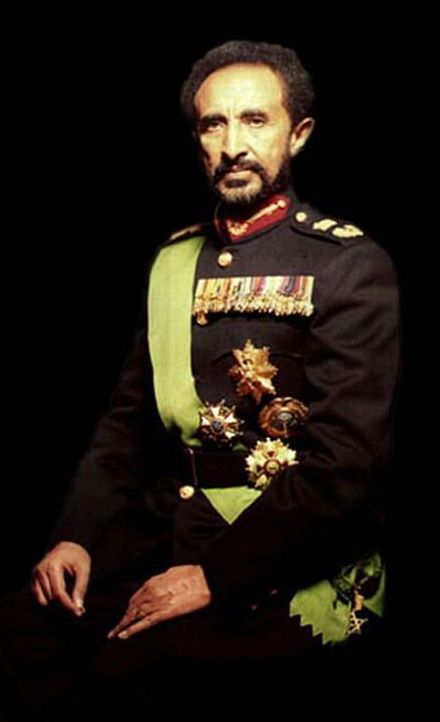
Haile Selassie, the revered Emperor of Ethiopia, stands as an emblem of resilience, leadership, and African identity. From his ascension to the throne in 1930 to his eventual dethronement in 1974, Selassie's reign encapsulated a period of profound change and upheaval in Ethiopia and the world. Often referred to as the "Lion of Judah," Selassie's steadfast belief in Ethiopia's sovereignty was evident in his leadership during the Second Italo-Ethiopian War, where he symbolized resistance against colonial oppression. His charismatic speeches on the international stage championed the rights of small nations and earned him global recognition. However, his reign was not without its challenges, as he navigated internal reforms and modernization efforts amidst political complexities. Selassie's enduring legacy is perhaps most pronounced in his symbolic role as the spiritual leader of the Rastafarian movement, who revere him as the incarnation of God and the Messiah. His teachings and influence continue to inspire countless individuals seeking spiritual enlightenment and a connection to their African heritage. Haile Selassie's life story is a tapestry of leadership, spirituality, and the fight for independence, embodying the aspirations of a nation and the spirit of unity across Africa and the diaspora. As we reflect on his legacy, let us recognize the power of individuals to become symbols of hope, cultural identity, and the pursuit of justice, and let us honor his memory by striving for a world where all nations and people are respected and celebrated.
Fredrick Douglass | United States
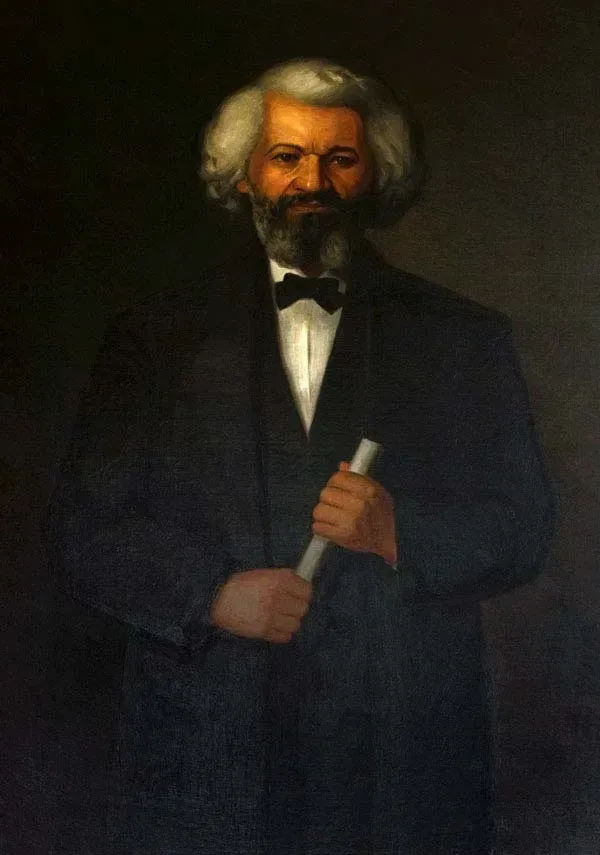
Frederick Douglass, a towering figure in African American history, emerges as an embodiment of resilience, eloquence, and the unrelenting pursuit of freedom. Born into slavery in Maryland, Douglass defied the odds by escaping bondage and becoming one of the most prominent abolitionists, writers, and orators of his time. His autobiographical account, "Narrative of the Life of Frederick Douglass, an American Slave," brought to light the horrors of slavery and his unquenchable thirst for education and emancipation. His speeches, like the iconic "What to the Slave Is the Fourth of July?" address, challenged the hypocrisy of a nation that celebrated liberty while still holding people in chains. Through his role as an advisor to President Abraham Lincoln during the Civil War and his tireless advocacy for the abolition of slavery, Douglass became a living testament to the power of resilience and courage in the face of oppression. His legacy extends beyond his contributions to the abolitionist movement, as he also championed women's suffrage and civil rights. Douglass's life serves as a reminder that education, knowledge, and unwavering determination can transform individuals from victims of injustice into powerful agents of change. His legacy reverberates through generations of activists and leaders who continue to fight for equality, justice, and human dignity. Frederick Douglass's story underscores the transformative potential of the human spirit, as he transcended the limitations imposed upon him to become an African hero whose words and actions ignited a movement that would reshape the course of history.
W.E.B. Du Bois | United States
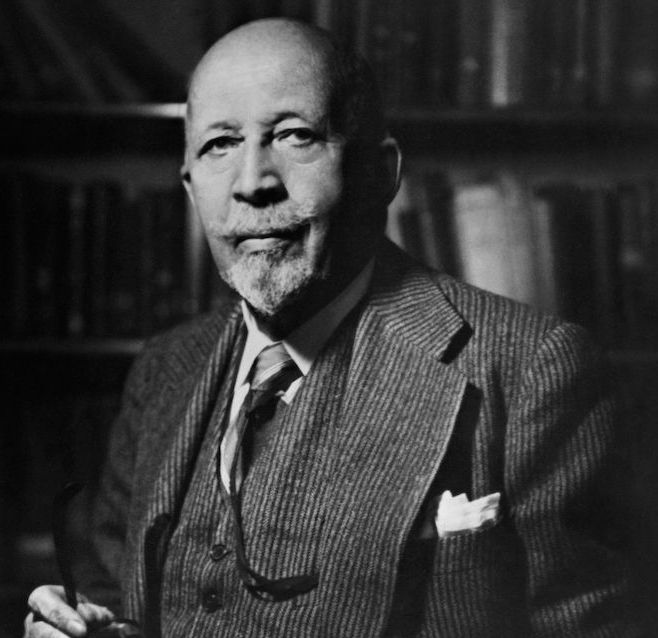
W.E.B. Du Bois, a towering intellectual and tireless advocate for civil rights, emerges as a luminous figure in African American history. A scholar, sociologist, and co-founder of the National Association for the Advancement of Colored People (NAACP), Du Bois's influence reverberates through his profound analyses of racial inequality and his unyielding dedication to equality. His seminal work, "The Souls of Black Folk," delves into the complex intersections of identity, culture, and social justice, showcasing his eloquence and deep insights. Du Bois's concept of the "talented tenth" underscored the importance of education and leadership within the African American community, while his Pan-Africanist leanings emphasized global unity among people of African descent. His belief in the power of knowledge and intellectual empowerment was a driving force in his life, and he himself was the first African American to earn a doctorate from Harvard University. Du Bois's activism against racial segregation, co-founding the NAACP, and his unrelenting calls for an end to racial prejudice shaped the trajectory of the civil rights movement in the United States. Despite facing constant opposition and discrimination, he remained steadfast in his quest for justice. His life and work continue to inspire generations of scholars, activists, and leaders worldwide, urging them to confront systemic racism, strive for education, and advocate for social and political equality. W.E.B. Du Bois's legacy serves as a reminder that the power of intellect, combined with unwavering dedication to the pursuit of equality, can ignite transformative change and shape a more just world for all.
Amina of Zazzau | Nigeria
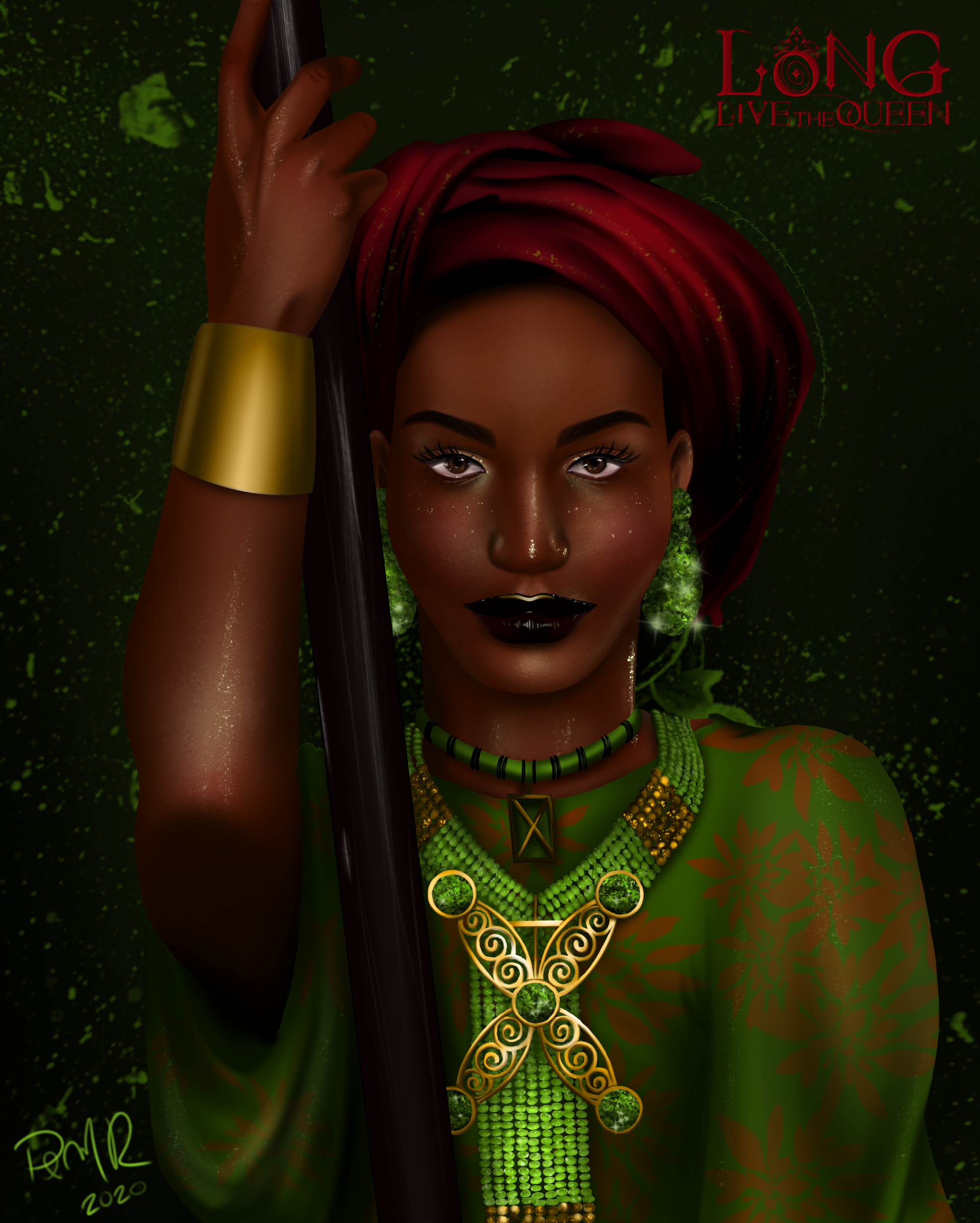
Amina of Zazzau, a legendary warrior queen and symbol of strength, embodies the spirit of African leadership and resilience. As the 16th-century ruler of the city-state of Zazzau, located in present-day Nigeria, Amina's legacy is a testament to her exceptional military prowess and her unwavering commitment to defending her people's autonomy and culture. Amina is often celebrated for her strategic acumen on the battlefield and her innovation in military tactics, which allowed her kingdom to thrive despite constant threats from neighboring regions. Her leadership was characterized by a deep sense of duty to her subjects, as she sought to secure their safety and preserve their way of life. Beyond her military achievements, Amina's legacy is a reminder of the vital roles that women have played throughout history, particularly in positions of leadership and defense. Her story inspires women worldwide to recognize their potential to make transformative contributions in any field they choose. Amina of Zazzau's legend continues to resonate, echoing through the ages as a testament to the strength, leadership, and unyielding resolve of African women. Her life story serves as an inspiration for present and future generations, encouraging them to honor their heritage, stand up against adversity, and uphold the values that define their communities and identities.
Dedan Kimathi | Kenya

Kwame Nkrumah, a visionary leader and ardent advocate for Pan-Africanism, left an indelible mark on the struggle for African independence and unity. As the first President of Ghana and a driving force behind the nation's liberation from colonial rule, Nkrumah's steadfast commitment to decolonization and self-determination reshaped the course of African history. His philosophy of "African socialism" aimed at achieving economic self-sufficiency and social justice, and he pursued policies that aimed to uplift the lives of Ghanaians. Nkrumah's vision extended beyond the borders of his own country, as he championed the Pan-African movement, emphasizing the importance of unity among African nations to overcome colonial legacies and create a brighter future. While his leadership style was not without controversy, his dedication to the African cause and his unwavering belief in the potential of the continent earned him a lasting place in history. Nkrumah's influence continues to reverberate across Africa and the diaspora, reminding us of the power of determination, unity, and the pursuit of a better future for all. His legacy serves as a reminder that even in the face of challenges, visionary leaders can shape the destiny of nations and inspire generations to come.
Mariama Ba | Senegal

Chimamanda Ngozi Adichie, a literary luminary and a fearless advocate for gender equality, has left an indelible mark on both the literary world and social discourse. Hailing from Nigeria, Adichie's works explore the complexities of identity, culture, and feminism in a globalized world. Her writing, characterized by vivid storytelling and profound insights, has garnered international acclaim, shedding light on the African experience and challenging prevailing narratives. Adichie's novel "Half of a Yellow Sun" vividly captures the Nigerian-Biafran War, while "Americanah" navigates themes of race, immigration, and belonging with remarkable depth. Beyond her literary contributions, Adichie's TED Talk "We Should All Be Feminists" ignited a global conversation about gender equality, inspiring individuals to reexamine societal norms and expectations. Her unapologetic advocacy for feminism resonates with people of all backgrounds, emphasizing the importance of equal rights and opportunities for all. Adichie's impact extends beyond her written words, as she encourages readers to critically engage with the world around them and to challenge ingrained biases. Her legacy serves as a reminder that literature has the power to shape minds and provoke change, making her a powerful role model for aspiring writers and activists alike. Through her eloquence, intellect, and unflinching dedication to justice, Chimamanda Ngozi Adichie exemplifies the potential of literature to bridge gaps, ignite conversations, and inspire progress in a world hungry for transformative ideas.
Mansa Musa | Mali

Kwame Nkrumah, a visionary leader and ardent advocate for Pan-Africanism, left an indelible mark on the struggle for African independence and unity. As the first President of Ghana and a driving force behind the nation's liberation from colonial rule, Nkrumah's steadfast commitment to decolonization and self-determination reshaped the course of African history. His philosophy of "African socialism" aimed at achieving economic self-sufficiency and social justice, and he pursued policies that aimed to uplift the lives of Ghanaians. Nkrumah's vision extended beyond the borders of his own country, as he championed the Pan-African movement, emphasizing the importance of unity among African nations to overcome colonial legacies and create a brighter future. While his leadership style was not without controversy, his dedication to the African cause and his unwavering belief in the potential of the continent earned him a lasting place in history. Nkrumah's influence continues to reverberate across Africa and the diaspora, reminding us of the power of determination, unity, and the pursuit of a better future for all. His legacy serves as a reminder that even in the face of challenges, visionary leaders can shape the destiny of nations and inspire generations to come.
Desmond Tutu | South Africa

Chimamanda Ngozi Adichie, a literary luminary and a fearless advocate for gender equality, has left an indelible mark on both the literary world and social discourse. Hailing from Nigeria, Adichie's works explore the complexities of identity, culture, and feminism in a globalized world. Her writing, characterized by vivid storytelling and profound insights, has garnered international acclaim, shedding light on the African experience and challenging prevailing narratives. Adichie's novel "Half of a Yellow Sun" vividly captures the Nigerian-Biafran War, while "Americanah" navigates themes of race, immigration, and belonging with remarkable depth. Beyond her literary contributions, Adichie's TED Talk "We Should All Be Feminists" ignited a global conversation about gender equality, inspiring individuals to reexamine societal norms and expectations. Her unapologetic advocacy for feminism resonates with people of all backgrounds, emphasizing the importance of equal rights and opportunities for all. Adichie's impact extends beyond her written words, as she encourages readers to critically engage with the world around them and to challenge ingrained biases. Her legacy serves as a reminder that literature has the power to shape minds and provoke change, making her a powerful role model for aspiring writers and activists alike. Through her eloquence, intellect, and unflinching dedication to justice, Chimamanda Ngozi Adichie exemplifies the potential of literature to bridge gaps, ignite conversations, and inspire progress in a world hungry for transformative ideas.
Abdias do Nascimento | Brazil

Kwame Nkrumah, a visionary leader and ardent advocate for Pan-Africanism, left an indelible mark on the struggle for African independence and unity. As the first President of Ghana and a driving force behind the nation's liberation from colonial rule, Nkrumah's steadfast commitment to decolonization and self-determination reshaped the course of African history. His philosophy of "African socialism" aimed at achieving economic self-sufficiency and social justice, and he pursued policies that aimed to uplift the lives of Ghanaians. Nkrumah's vision extended beyond the borders of his own country, as he championed the Pan-African movement, emphasizing the importance of unity among African nations to overcome colonial legacies and create a brighter future. While his leadership style was not without controversy, his dedication to the African cause and his unwavering belief in the potential of the continent earned him a lasting place in history. Nkrumah's influence continues to reverberate across Africa and the diaspora, reminding us of the power of determination, unity, and the pursuit of a better future for all. His legacy serves as a reminder that even in the face of challenges, visionary leaders can shape the destiny of nations and inspire generations to come.
Queen Nzinga | Angola

Chimamanda Ngozi Adichie, a literary luminary and a fearless advocate for gender equality, has left an indelible mark on both the literary world and social discourse. Hailing from Nigeria, Adichie's works explore the complexities of identity, culture, and feminism in a globalized world. Her writing, characterized by vivid storytelling and profound insights, has garnered international acclaim, shedding light on the African experience and challenging prevailing narratives. Adichie's novel "Half of a Yellow Sun" vividly captures the Nigerian-Biafran War, while "Americanah" navigates themes of race, immigration, and belonging with remarkable depth. Beyond her literary contributions, Adichie's TED Talk "We Should All Be Feminists" ignited a global conversation about gender equality, inspiring individuals to reexamine societal norms and expectations. Her unapologetic advocacy for feminism resonates with people of all backgrounds, emphasizing the importance of equal rights and opportunities for all. Adichie's impact extends beyond her written words, as she encourages readers to critically engage with the world around them and to challenge ingrained biases. Her legacy serves as a reminder that literature has the power to shape minds and provoke change, making her a powerful role model for aspiring writers and activists alike. Through her eloquence, intellect, and unflinching dedication to justice, Chimamanda Ngozi Adichie exemplifies the potential of literature to bridge gaps, ignite conversations, and inspire progress in a world hungry for transformative ideas.
Chinua Achebe | Nigeria

Kwame Nkrumah, a visionary leader and ardent advocate for Pan-Africanism, left an indelible mark on the struggle for African independence and unity. As the first President of Ghana and a driving force behind the nation's liberation from colonial rule, Nkrumah's steadfast commitment to decolonization and self-determination reshaped the course of African history. His philosophy of "African socialism" aimed at achieving economic self-sufficiency and social justice, and he pursued policies that aimed to uplift the lives of Ghanaians. Nkrumah's vision extended beyond the borders of his own country, as he championed the Pan-African movement, emphasizing the importance of unity among African nations to overcome colonial legacies and create a brighter future. While his leadership style was not without controversy, his dedication to the African cause and his unwavering belief in the potential of the continent earned him a lasting place in history. Nkrumah's influence continues to reverberate across Africa and the diaspora, reminding us of the power of determination, unity, and the pursuit of a better future for all. His legacy serves as a reminder that even in the face of challenges, visionary leaders can shape the destiny of nations and inspire generations to come.
Thomas Mapfumo | Zimbabwe

Chimamanda Ngozi Adichie, a literary luminary and a fearless advocate for gender equality, has left an indelible mark on both the literary world and social discourse. Hailing from Nigeria, Adichie's works explore the complexities of identity, culture, and feminism in a globalized world. Her writing, characterized by vivid storytelling and profound insights, has garnered international acclaim, shedding light on the African experience and challenging prevailing narratives. Adichie's novel "Half of a Yellow Sun" vividly captures the Nigerian-Biafran War, while "Americanah" navigates themes of race, immigration, and belonging with remarkable depth. Beyond her literary contributions, Adichie's TED Talk "We Should All Be Feminists" ignited a global conversation about gender equality, inspiring individuals to reexamine societal norms and expectations. Her unapologetic advocacy for feminism resonates with people of all backgrounds, emphasizing the importance of equal rights and opportunities for all. Adichie's impact extends beyond her written words, as she encourages readers to critically engage with the world around them and to challenge ingrained biases. Her legacy serves as a reminder that literature has the power to shape minds and provoke change, making her a powerful role model for aspiring writers and activists alike. Through her eloquence, intellect, and unflinching dedication to justice, Chimamanda Ngozi Adichie exemplifies the potential of literature to bridge gaps, ignite conversations, and inspire progress in a world hungry for transformative ideas.
Queen Amina | Nigeria

Kwame Nkrumah, a visionary leader and ardent advocate for Pan-Africanism, left an indelible mark on the struggle for African independence and unity. As the first President of Ghana and a driving force behind the nation's liberation from colonial rule, Nkrumah's steadfast commitment to decolonization and self-determination reshaped the course of African history. His philosophy of "African socialism" aimed at achieving economic self-sufficiency and social justice, and he pursued policies that aimed to uplift the lives of Ghanaians. Nkrumah's vision extended beyond the borders of his own country, as he championed the Pan-African movement, emphasizing the importance of unity among African nations to overcome colonial legacies and create a brighter future. While his leadership style was not without controversy, his dedication to the African cause and his unwavering belief in the potential of the continent earned him a lasting place in history. Nkrumah's influence continues to reverberate across Africa and the diaspora, reminding us of the power of determination, unity, and the pursuit of a better future for all. His legacy serves as a reminder that even in the face of challenges, visionary leaders can shape the destiny of nations and inspire generations to come.
Marcus Garvey | Jamaica

Chimamanda Ngozi Adichie, a literary luminary and a fearless advocate for gender equality, has left an indelible mark on both the literary world and social discourse. Hailing from Nigeria, Adichie's works explore the complexities of identity, culture, and feminism in a globalized world. Her writing, characterized by vivid storytelling and profound insights, has garnered international acclaim, shedding light on the African experience and challenging prevailing narratives. Adichie's novel "Half of a Yellow Sun" vividly captures the Nigerian-Biafran War, while "Americanah" navigates themes of race, immigration, and belonging with remarkable depth. Beyond her literary contributions, Adichie's TED Talk "We Should All Be Feminists" ignited a global conversation about gender equality, inspiring individuals to reexamine societal norms and expectations. Her unapologetic advocacy for feminism resonates with people of all backgrounds, emphasizing the importance of equal rights and opportunities for all. Adichie's impact extends beyond her written words, as she encourages readers to critically engage with the world around them and to challenge ingrained biases. Her legacy serves as a reminder that literature has the power to shape minds and provoke change, making her a powerful role model for aspiring writers and activists alike. Through her eloquence, intellect, and unflinching dedication to justice, Chimamanda Ngozi Adichie exemplifies the potential of literature to bridge gaps, ignite conversations, and inspire progress in a world hungry for transformative ideas.
SOURCE: http://ow.ly/c1Y730nU7wy

